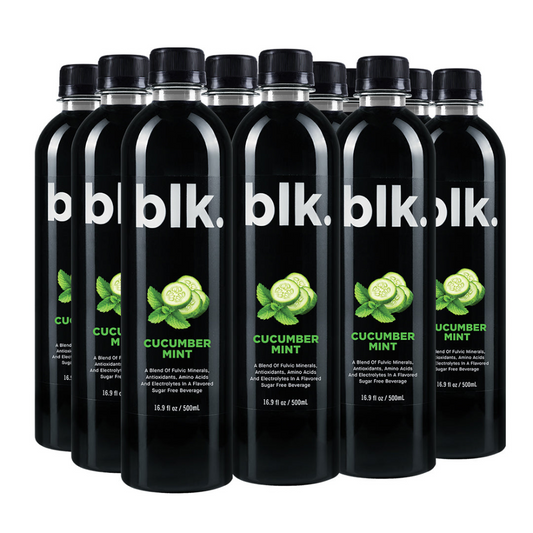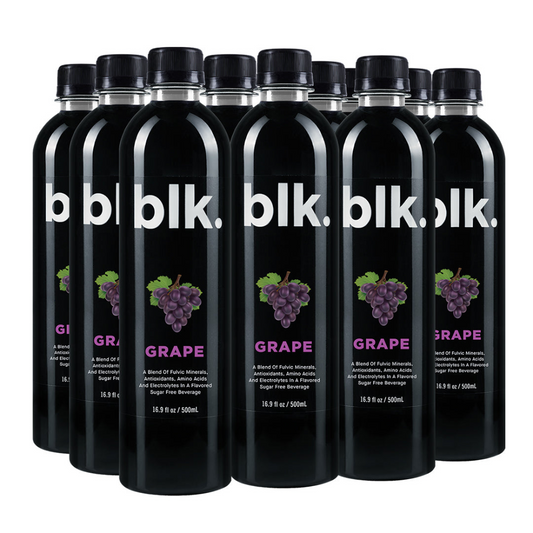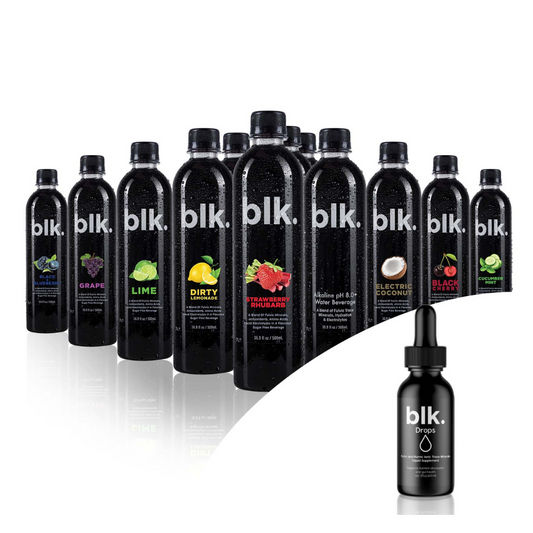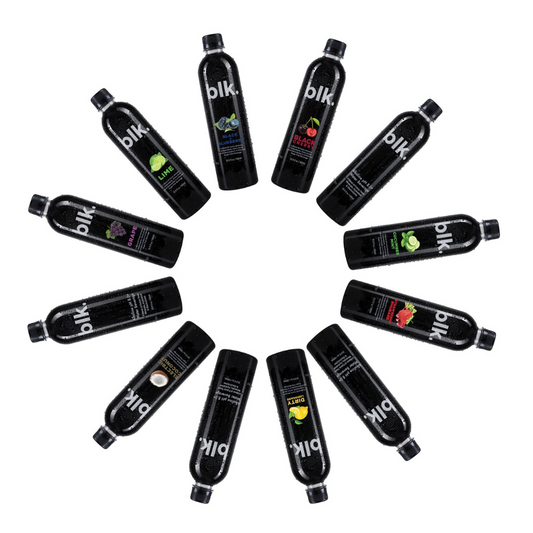
Whey Protein Hydrolysate: The Fast-Acting Option
This Guide Seeks to Answer:
- What whey protein hydrolysate is, and how does it differ from other whey protein powder types?
- How whey protein hydrolysate is made.
- How you can benefit from whey protein hydrolysate.
- How you can use whey protein hydrolysate.
If you are a bodybuilder or fitness buff, you probably understand that whey protein is an essential supplement for muscle building. But have you heard of the term “whey protein hydrolysate”? One notable feature of whey protein hydrolysate is its nutritional value. If you were to translate the nutritional value of various supplements into lean mass gained, whey protein hydrolysate would likely top that list. Whey protein is a milk-based protein supplement, so the question is, does the addition of the term ‘hydrolysate’ translate into spending a few more dollars on supplements? This guide seeks to provide insight into the fundamentals of whey protein hydrolysate.
How Does Whey Protein Hydrolysate Differ From Other Forms of Whey Protein?
Whey protein hydrolysate is a hydrolyzed form of whey protein that contains di- and tripeptides.
Dipeptides and tripeptides are highly soluble than free-form amino acids. The two organic compounds are even much more soluble compared to non-hydrolyzed proteins. One scientific study suggests that when you combine high-glycaemic carbohydrates with whey protein hydrolysate you are likely to create a highly effective post-exercise supplement.
The term ‘hydrolyzed’ denotes whey protein breakdown, predigestion, or hydrolysis. This hydrolysis process produces the whey protein hydrolysate (hydrolyzed whey). The composition of the whey protein hydrolysate produced depends on the number of broken bonds, reaction conditions as well as utilized enzymes. The extent of this process also dictates the resulting amount of amino acids per peptide. For instance, if the magnitude of the hydrolysis process is high, the amount of amino acids per peptide becomes small.
The major difference in the types of whey protein is in the production process and nutritional value. Whey protein powder goes through certain filtration processes to remove other compounds.
Whey Protein Concentrate
Whey protein concentrate is formed after liquid sweet whey is microfiltered to separate casein. The protein concentration of the resulting whey protein powder is approximately 70-80%. However, this whey protein concentrate still contains fat, lactose, and sugar. So, whey protein concentrate might not be the best fit if you are intolerant or sensitive to lactose, fat, or sugar. Whey protein concentrate is not only calorie dense but also takes too long to be absorbed. The final implication is that it slows down your muscle recovery rate.
Whey Protein Isolate
Whey protein isolate is created through the ultrafiltration of whey protein concentrate. The ultrafiltration process involves purifying whey protein concentrate to reduce the number of fats and carbohydrates while improving the protein concentration. In a nutshell, the process ‘isolates’ whey protein from non-protein components. That is the origin of ‘whey protein isolate.’ The resulting whey protein powder has a protein concentration of 90% with little to no lactose, fat, or sugar.
If one more filtration procedure is carried out on whey protein isolate, the final outcome is whey protein hydrolysate. A quick look into the procedure of the different whey protein powders shows a variation in their composition and protein concentration. The hydrolysis process makes whey protein hydrolysate a purer form of whey protein.
Similarities and Differences: Whey protein Concentrate, Isolate, And Hydrolysate
|
Category |
Whey Protein Concentrate |
Whey Protein Isolate |
Whey Protein Hydrolysate |
|
Protein content |
70-80% |
90% or higher |
80-90% |
|
Manufacturing process |
Filtered to remove some non-protein components |
Further filtered to remove almost all non-protein components |
Partially hydrolyzed to break down protein into smaller peptides |
|
Cost |
Lower cost |
Higher cost |
Highest cost |
|
Digestion speed |
Moderate digestion speed |
Fast digestion speed |
Fast digestion speed |
|
Ingestion time |
Can be taken throughout the day |
Best taken immediately after exercise or as part of a pre-workout meal |
Immediately after exercise or as part of a pre-workout meal due to its fast digestion speed |
|
Allergenic potential |
Contains some lactose and milk fat, may cause digestive issues in some people with lactose intolerance or milk allergies |
Virtually lactose and fat-free, lower allergenic potential |
Some hydrolysates may still contain small amounts of lactose and milk fat, but generally lower allergenic potential than concentrate |
|
Amino acid profile |
Contains all essential amino acids, but lower amounts of some compared to isolate or hydrolysate |
Contains all essential amino acids in higher amounts than concentrate |
Contains amino acids in pre-digested form, making them easier to absorb |
|
Uses |
Suitable as a general protein supplement, good for post-workout recovery |
Can be used by lactose intolerant people and those who want a higher protein content per serving |
Used as a fast-digesting protein by individuals such as athletes or those looking to reduce muscle breakdown during fasting or weight loss diets |
Recommended Whey Protein Hydrolysate Products For 2023
The price of whey protein hydrolysate products is higher than that of whey protein concentrate and isolate due to its higher protein content. Some of the recommended whey protein hydrolysate products include:
- Gaspari Nutrition: Proven Whey Hydrolyzed Whey Isolate Neapolitan Ice Cream 28 Servings
- APS Nutrition: Isomorph 28 Cookies & Cream 27 Servings
- Ruleone - R1 Protein Strawberry 29 Servings
- On: Platinum Hydrowhey Turbo Chocolate 40 Servings
- Rivalus: Rival Whey Warm Ups Mint Mocha 15 Servings
The Science of Whey Protein Hydrolysate
Whey protein hydrolysate is arguably one of the best advancements in the supplement industry. One of the reasons why you may want to consider whey protein hydrolysate is its rapid absorption. Studies suggest muscle growth is highly stimulated after workouts when the body rapidly absorbs hydrolyzed whey. This is why whey protein hydrolysate has been popular among fitness buffs.
In the broad science dictionary, hydrolysis is a process whereby water breaks down molecular bonds. However, for supplement users, it refers to a different procedure. In the supplement industry, hydrolysis is a process where protein peptides are broken down into smaller portions, thus making it easier for whey protein hydrolysate to be absorbed.
Protein hydrolysis occurs once you consume protein. The process utilizes acids and enzymes in the gastrointestinal tract, such as the small intestine and stomach. However, a lab hydrolysis procedure is done by heating acid alongside proteolytic enzymes. Supplement manufacturing companies create whey protein hydrolysate products by introducing food-grade enzymes to whey protein.
When buying whey protein hydrolysate supplements, have you encountered a phrase like ‘100% hydrolyzed’? This percentage of hydrolysis denotes the amount of protein that has gone through the hydrolysis process. For instance, in this case, if you see ‘100% hydrolyzed,’ it means that 100% of the protein has been subjected to hydrolysis and that the product does not contain non-hydrolyzed proteins.
Sometimes you will come across whey protein hydrolysates that are only 50% hydrolyzed, which means that 50% of the product’s proteins are non-hydrolyzed. However, most of the products you will come across are probably 100% hydrolyzed.
Check the degree of hydrolysis(DH), which is the most reliable indicator of best hydrolyzed whey powder. DH refers to the extent of protein hydrolysis. It ranges from no hydrolysis (denoted as DH0) to complete hydrolysis, denoted as DH100. When considering a product, check the degree of hydrolysis. If the DH is high, it means that your body can rapidly absorb the whey protein hydrolysate. A product labeled as DH30 means that only 30% of the protein was successfully hydrolyzed and that the remaining 70% are still tetrapeptides, which will offer a slower absorption rate.
Benefits of Whey Protein Hydrolysate
You can't talk about muscle-building supplements and fail to mention whey protein hydrolysate. Hydrolyzed whey protein has a high nutritional value with several health and workout benefits. What can you gain from using whey protein hydrolysate?
Here are some of the pros of hydrolyzed whey:
#1 Facilitates lean muscle mass
If you have been working out constantly to achieve lean body mass but haven’t had much success, whey protein hydrolysate is a blessing in disguise. Naturally, any protein supplement or foods rich in protein aid in building lean muscle mass. Hydrolyzed whey features naturally occurring amino acids that promote muscle growth and strength. Additionally, it benefits in muscle rebuilding in older adults experiencing age-related muscle loss.
#2 Helps with weight loss and management
Other than building muscle mass, whey protein hydrolysate also supports weight loss by helping you control your appetite. When you feel full for longer, you won’t have to eat regularly, thus reducing your calorie intake.
Furthermore, calories in your body are burned when building lean muscle mass. This ensures that you watch your weight.
#3 Aids post-workout recovery
Whey protein hydrolysate comprises smaller peptides that your body can easily absorb. YourThis means that your recovery rate after workouts will be top-notch when you consume hydrolyzed whey. The notion here is that quick absorption ensures that nutrients are expeditiously supplied to the strained muscles, thus easing soreness and improving muscle recovery.
#4 A high-quality source of protein
Whey protein hydrolysate’s impressive amino profile makes it a great option for you to increase your protein intake. Amino acids are the building blocks of protein. So, if whey protein hydrolysate contains unique and essential amino acids, it is a high-quality protein source.
#5 Weight gain
Taking whey protein hydrolysate does not necessarily mean that you will automatically lose weight. You can also use hydrolyzed whey to gain weight and boost your nutrition. For instance, if you are experiencing protein deficiency, it means your regular diet can’t supply sufficient proteins. When that happens, you can incorporate whey protein hydrolysate to supplement your diet.
How to Use Whey Protein Hydrolysate
Dosage
The recommended whey protein hydrolysate dosage is 1 or 2 scoops of approximately 25 - 50 grams daily. You can take hydrolyzed whey protein before or after workouts depending on your workout objectives. When you take the supplement after a workout, it boosts your muscle recovery rate. You should also follow the recommended serving instructions on the product’s label. Unless you have any underlying health condition, the recommended dosage should be close to accurate.
There is no need to take whey protein hydrolysate if you already have a high protein intake.
Generally, whey protein hydrolysate (and other whey protein powders) has a positive safety profile. Scientific study reveals that there is no epidemiological evidence to support the unwarranted claims that whey protein hydrolysate has adverse effects on healthy kidneys.
Whey Protein Hydrolysate and Workout Performance
According to one epidemiologic study, whey protein hydrolysate has the potential to hasten tissue recovery and can thus be used to accelerate muscle recovery from intense exercise.
When you exercise, two things happen; antioxidant glutathione reduces while oxidative damage increases. The implication of this is reduced performance and fatigue. You can only overcome this unfortunate phenomenon by maximizing antioxidant glutathione concentrations. When your body’s oxidative capacity increases, your endurance performance also increases. But how can you increase your glutathione levels? Your body requires an essential amino acid (cysteine) to increase glutathione production. Whey protein hydrolysate has the potential to increase glutathione supply to your body.
Additionally, whey protein hydrolysate contains leucine, one of the essential Branched-Chain Amino Acids (BCAAs), which is vital for boosting muscle protein synthesis and reducing post-workout muscle breakdown. After intense strength training, micro-tears develop in your muscle fibers; this causes inflammation which consequently triggers your body’s muscle repair response. If your nutrition lacks protein, you will develop muscle aches and soreness. A diet rich in whey protein hydrolysate may help with such symptoms while speeding up recovery.
If you walk into a gym or a training ground for athletes, you will notice that they take whey protein hydrolysate shakes after training. The reason is whey protein hydrolysate comprises formulas capable of nourishing your body. The supplement also provides vital amino acids that support muscle repair. On top of improving your recovery rate, you also gain lean muscle mass while losing fat. Whey protein hydrolysate may be beneficial if you are on a diet or anticipating a crucial tournament or competition.
The Role of Whey Protein Hydrolysate in Reducing Body Fat
Studies reveal that whey protein hydrolysate has the potential to reduce weight gain from a high-fat diet. The study further suggests that hydrolyzed whey may also boost glucolipid metabolism, thus reducing the accumulation of subcutaneous fat. This study implies that when you take whey protein hydrolysate, you increase your chances of weight loss (if that is your objective).
Over the years, obesity has become a health risk that people struggle to eradicate. Because of the wide range of health complications that obesity can cause, it has become a health hazard. And for middle-aged or older people, it is not just about the associated health risks; they also face a worrying loss of muscle strength and mass.
According to more epidemiologic studies, obesity is also listed as one factor that aggravates sarcopenia (age-related muscle loss). This means that a high-fat diet can be a health hazard that people need to find effective ways of alleviating.
As this guide has mentioned, whey protein hydrolysates could help preserve muscle mass and reduce body weight. A high-protein diet may be the missing link in your quest to maintain a healthy body weight and preserve your muscle mass and strength if you are middle-aged. Whey protein hydrolysate is rich in leucine, one of the essential amino acids the body requires to facilitate protein synthesis. As a result of high-quality protein intake rich in leucine, your body gets to preserve a lean muscle mass.
Leucine also stimulates fat burning (oxidation of fatty acid), which is a process that reduces fat in the body. In the fight against obesity, whey protein hydrolysate is a great weapon. The hydrolyzed whey provides enough fuel to your body for protein synthesis, which helps with weight loss.
The Role of Whey Protein Hydrolysate in Reducing Fatigue
Modern-day sports require athletes to have top-notch physical fitness. Athletes and bodybuilders are required to incorporate high-protein intake to meet their competition and training needs. Whey protein hydrolysate provides the dietary needs required to keep up with the intensity of competitive sports. Athletes, like everyone else, become fatigued after high-intensity exercise training. In addition to diversifying the training equipment and methods, effective and timely protein supplements help alleviate fatigue in the sports sector.
Some of the reasons why whey protein hydrolysate may be a good fit for reducing fatigue in athletes include:
- Whey protein hydrolysate is highly digestible. Its potency, bioavailability, and metabolic efficiency are also high.
- Whey protein hydrolysate also contains essential BCAAs such as leucine. These vital BCAAs provide the energy your body requires for endurance performance.
- Hydrolyzed whey protein may help maintain the oxidant levels in your body.
The Impact of Whey Protein Hydrolysate on Blood Flow And Oxygenation
Studies suggest that whey protein hydrolysate has the potential to improve artery health and brain blood flow. As people age, blood pressure tends to increase due to arteries hardening. This phenomenon implies that it potentially reduces cognitive function and impedes brain blood flow.
Cognitive functions such as attention, decision-making, problem-solving, and memory are crucial determinants of your overall health status. A diet rich in whey protein hydrolysate may help improve memory and lower blood pressure.
Generally, proteins are associated with having natural effects that minimize blood pressure. And whey protein hydrolysate contains high-quality protein.
The Effects of Whey Protein Hydrolysate on Mental Clarity And Focus
When you hear ‘whey protein hydrolysate,’ it is hard to think beyond muscle building and repair. But studies suggest that whey protein hydrolysate may also increase mental energy, thus reducing stress levels. The epidemiologic study suggests that whey protein hydrolysate can improve your mood, mental health, and well-being. So, hydrolyzed whey isn't only about being physically fit or gaining and losing weight.
Amino acids are used to produce neurotransmitters such as serotonin, dopamine, and norepinephrine. These are chemicals critical for controlling learning, contraction, and memory. Serotonin, for instance, is a chemical that helps you minimize anxiety and depression. Additionally, it helps you fight stress by increasing your energy levels.
The Effects of Whey Protein Hydrolysate on Overall Athletic Performance
Protein is a vital nutrient the body needs to sustain daily physical activities. It goes without saying whey protein hydrolysate is a major source of high-protein intake. For most people, protein is just a necessity to achieve a balanced diet. But do you know why it is important to incorporate protein into your regular diet?
The amino acids in whey protein hydrolysate are broken down during digestion to provide energy to your body. When you don't consume adequate high-quality protein, your body breaks down muscle protein to sustain bodily functions. And that does not do you any good, especially if you want to improve your athletic performance.
The numerous trips to the gym won’t help you achieve physical fitness if you are not consuming high-quality protein. You need to combine regular physical training with whey protein hydrolysate to stimulate muscle growth as well as post-workout recovery. Of course, you can consume foods rich in high-quality protein, such as beef, eggs, or fish. But then whey protein hydrolysate not only offers you effectiveness but also convenience.
After a long training at the training ground, athletes not only need something to stimulate muscle recovery but also something that can be easily absorbed and digested. It would take a long time before food is broken down to provide the required nutrients to stimulate muscle repair and recovery. This is why many athletes carry a hydrolyzed whey protein shake to training. It also has the added benefit of portability and high absorption, and digestibility.
How to Choose the Best Whey Protein Hydrolysate Available Online
One thing that makes bodybuilders uneasy is the choice of post-workout supplements. If you are a fitness enthusiast or bodybuilder, you have probably considered adding whey protein hydrolysate to your workout routine (if you are not using it already). Well, the good news is that you probably have chosen one of the best protein supplements in the industry. If you are looking to build a muscular physique, you shouldn’t look past whey protein hydrolysate. But you should ensure that you pick the right hydrolyzed whey supplements. That is always a cause for headaches among bodybuilders; however, it shouldn’t be a problem if you understand your nutritional needs. Some of the factors to watch out for include the following:
Quality of Ingredients
Quality of the ingredients is often the priority for most people. You should check whether the hydrolyzed whey product contains artificial sweeteners/sugars. Try to avoid such products and go for those that are mostly natural.
Hydrolysis Process
Hydrolysis breaks down peptide bonds to form free amino acid and carboxyl groups. The outcome of this process is a more digestible and soluble protein hydrolysate. The higher the degree of hydrolysis, the more digestible and soluble the protein is; you should go for an extensively hydrolyzed whey protein.
Protein Content
You have to look at whether the ingredients contain the essential amino acids required for muscle building. You will most likely get these essential nutrients from a protein hydrolysate with a higher protein content. Generally, hydrolyzed whey has a 75.6% protein content, but the protein content varies from one product to another.
Taste
Whey protein hydrolysate has a bitter taste that you may not like. But different hydrolyzed whey products may include flavors to neutralize that bitter taste. You should sample different flavors to find one that suits your needs.
Price
Try to be mindful of your budget when purchasing whey hydrolysate products. You can look for a supplement that fits the other criteria while also falling within your budget plans. Look out for discounts and offers too (if there are any).
Brand Reputation
Brand reputation encompasses the perception that people have about a particular brand. It is often derived from the experiences and feedback left by customers about the products or services received. This is crucial because a negative response means that you should steer away from such a product.
Certifications
Since the Food and Drug Administration is not authorized to ascertain the effectiveness and safety of dietary supplements, the supplement industry may be flooded with low-quality products. So, if you’re skeptical about unapproved products, try to look for ones that have been certified by approved third-party organizations such as the National Science Foundation.
Allergen Information
You should check if the product has an allergy disclaimer that lists all the common allergies which it may contain.
Return and Shipping Policy
It is important to know the retailer’s return and exchange policies to avoid future inconveniences. Ripped.com has a comprehensive refund policy. Some of the most important ones include:
- You can get a refund as long as you return your order within ten days of delivery.
- Make a return request to allow the company to track and process your refund/exchange.
- Non-refundable shipping costs.
Potential Side Effects of Whey Protein Hydrolysate and Precautions
Whey protein hydrolysate is a relatively new form of whey protein, so there isn’t much research to go by when it comes to possible side effects. But then, since hydrolyzed whey is a type of whey protein, it is possible that they may have similar possible side effects. However, whey protein hydrolysate contains smaller peptides compared to its whey protein counterparts.
The common side effect of whey protein products is that it causes allergic reactions in lactose intolerant people, since whey protein is milk-based. However, it is also possible that you may not experience any allergic reactions due to whey protein hydrolysate since it is the purest form of whey protein.
How to Minimize Side Effects of Whey Protein Hydrolysate
If you consume whey protein hydrolysate supplements and experience any allergic reactions, discontinue the usage and consult a doctor. Additionally, remember to stick within the recommended dosage or serving instructions prescribed on the product’s label.
Conclusion
Whey protein hydrolysate is a popular supplement among athletes and fitness enthusiasts. This guide discusses the benefits of hydrolyzed whey, including stimulating muscle recovery and supporting muscle mass. The role of whey protein hydrolysate in weight gain or loss has also been discussed. Of course, supplements are barely free of risks; the potential side effects have also been outlined in this article. Always follow the recommended dosage and timing.
Frequently Asked Questions
-
I am lactose intolerant, is whey protein hydrolysate safe?
-
How does whey protein hydrolysate compare to casein protein?
-
Can I use whey protein hydrolysate if I'm vegan or vegetarian?
-
Is whey protein hydrolysate safe for pregnant or breastfeeding women?
-
Is it true that whey protein hydrolysate can cause stomach upset or bloating?
-
Can whey protein hydrolysate be used to treat or prevent any medical conditions?
-
Is Whey Protein Hydrolysate gluten-free?
-
Can Whey Protein Hydrolysate be used as a meal replacement?
-
How does Whey Protein Hydrolysate support post-surgery and injury recovery?
-
Can Whey Protein Hydrolysate be taken on an empty stomach?
-
How does Whey Protein Hydrolysate support immune system health?
-
Can Whey Protein Hydrolysate interact with any medications?




